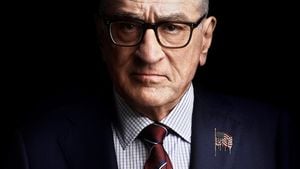Pope Francis's health has sparked fresh speculation about his potential resignation as he grapples with health issues, including hospitalization due to bilateral pneumonia. The long-serving pontiff, who turned 88 this past December, has surpassed his predecessor, Benedict XVI's, record of papal service following voluntary resignation.
Hospitalized since February 14, 2025, at Gemelli Polyclinic in Rome, his condition raised considerable concern. Cardinal Gianfranco Ravasi, who previously served as the head of the Vatican's Cultural Department, stated during his February 21 interview with the Corriere della Sera, "If Pope Francis has serious difficulties to fulfill his duties, he will make his decision. It is up to him to decide; he has the last word." This comment has heightened discussions among cardinals about the future leadership of the Catholic Church should the Pope, known for his progressive stance, step down.
While the Vatican continues to downplay resignation rumors, reports indicate Cardinal Ravasi's remarks reflect broader conversations taking place among religious leaders. Other cardinals, such as Jean-Claude Hollerich, have conveyed varied sentiments. Hollerich emphasized the decision's ultimate authority rests with Pope Francis, arguing it is inappropriate to speculate on such matters openly.
Prime Minister Giorgia Meloni's visit bolstered hopes surrounding the Pope's health. "I am very happy to have found him attentive and receptive. We joked as always. He hasn’t lost his proverbial sense of humor," she shared after meeting with the pontiff, providing reassurance amid growing worries of his condition. Even amid hospitalization, Francis is reportedly engaged, continuing to sign documents and tend to urgent Church matters.
Additionally, Pope Francis himself has publicly recognized the necessity of considering resignation if his health declines sharply. He has mentioned the precedent set by Benedict XVI was significant, acknowledging, "Benedict XVI opened the path to his successors," signaling awareness of the shifting dynamics influenced by health-related concerns.
The conversation around resignation has undoubtedly become more acute, especially as key figures within the Catholic hierarchy suggest its viability. Others, like Cardinal Giovanni Battista Re, firmly dismissed the idea of resignation, asserting, "The recovery of the Pope is progressing favorably." Yet, the specter of succession planning lingers, with many behind the scenes preparing for the possibility of his departure.
Earlier reflections from 2022 revealed Francis had even drafted and signed a resignation letter shortly after taking office, intending it for use if health issues impeded his ability to lead effectively. This foresight serves as fodder for those speculating on when or if he might invoke such provisions.
This situation fits the backdrop of the Catholic Church, already embroiled in internal debates over the direction and leadership, as various factions vie for influence. On one hand, progressive elements embrace Francis's inclusive egalitarianism. Conversely, the conservative faction yearns for pastoral returns under strong traditionalist leadership.
The effects of Francis's potential resignation could be far-reaching. With nearly 80% of the current College of Cardinals appointed by the sitting Pope, efforts to shape the Church's future are heavily influenced by his choices. It remains to be seen if these cardinals will rally behind successors who align with his progressive approach, or if they, instead, pivot back to conservatism.
The assembly of cardinals historically serves as the epicenter during succession. Procedures entail fully isolated meetings within the Sistine Chapel, where cardinals engage to elect the new leader after resignations or passing. The significant question revolves around who they might select if such circumstances arise, with names like Cardinal Luis Antonio Tagle of the Philippines and Cardinal Pietro Parolin floating to the forefront. Notably, Tagle is revered for his collaborative ties to the Pope and progressive outlook on Church doctrine, whereas Parolin's diplomatic accomplishments have garnered him both respect and concern.
Francis's connection to these candidates could build bridges toward unity—or widen gaps if polarizing dynamics influence voting. Regardless of these scenarios, aspiration and speculation tighten like threads around the forthcoming conclave.
Officially, the Vatican clarifies the Pope is improving but remains under careful watch. Doctors affirm his recovery has gained traction, but they also stress, "The Pope is not out of danger." Signs indicate some improvement, as additional collaborations were mentioned, yet the frailty of his age combined with serious health concerns prompts necessary caution.
Despite these developments, the current conversation remains firmly fixated on the future of Papal authority and the potential for when those winds of change could begin to sweep through the leadership of the Catholic Church. The vague whisper of 'conclave' echoes among cardinals and faithful alike as the world awaits clarity about one of the most significant transitions faced by the global Church.



